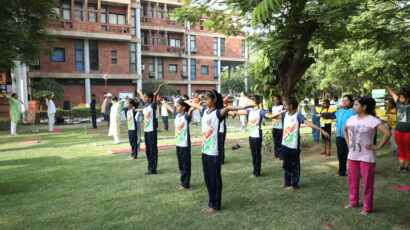India will take back illegal migrants in UK in return for professional visas

In a virtual summit with British counter part Boris Johnson on Tuesday Prime minister Narendra Modi agreed to take back illegal migrants in return for professional visas.
The virtual summit was conducted in place of Boris Johnson’s cancelled India visit due to the second wave of coronavirus infections.
India and UK signed a pact on migration and mobility, wherein India will take back illegal migrants from the UK in return for employment visas for 3000 Indian professionals, said Sandeep Chakravarty, joint secretary in MEA, briefing journalists after the summit. “It is our solemn duty that Indian nationals who are undocumented, or are in distress abroad and not being given nationality or residence permits, have to be taken back,” Chakravorty said, Times of India reported.
According to the report, Britain’s interior ministry said in a statement that the deal aimed to attract “the best and brightest, and supporting people coming to the UK through legal routes, while stopping the abuse of the system and speeding up the removal of those who have no right to be in the UK”. Earlier negotiations on this issue had gone nowhere.
An MEA readout said India and UK have agreed on an early market access package — UK will open up the fisheries sector for more Indian players, facilitate more opportunities for nurses, recognize Indian seafarers certificates and also enter into a joint dialogue on the Social Security Agreement. In return, India has agreed to UK’s demands on fruits, medical devices, and mutual recognition of masters degrees and also work towards reciprocal opening of legal services. “These actions are likely to generate 20-25,000 new direct and indirect jobs in India,” the report said.
The Roadmap 2030 provides a framework for UK-India relations across health, climate, trade, education, science and technology, and defense. Announcing an enhanced trade partnership, the two countries also promised to begin negotiations for an FTA later this year.
It includes commitments to expand the UK-India health partnership to enhance global health security and pandemic resilience. This includes firming up international supply chains to ensure critical medicines, vaccines and other medical products reach those who need them most.
Both nations have pledged to achieve ambitious goals on tackling climate change and preserving biodiversity by accelerating the development of clean energy and transport.
They will also deepen their economic relationship through an enhanced trade partnership and confirmed their intent to negotiate a free trade agreement with a view to doubling UK-India trade over the next decade. India has elevated the status of its relationship with the UK to a ‘Comprehensive Strategic Partnership’ – the first European country to be granted that status.
Chakravarty said, the vaccine partnership through the Oxford-AstraZaneca-SII collaboration was highlighted. They agreed to expand partnership on vaccines, therapeutics and diagnostics on Covid19 and beyond through joint research including on nasal vaccines, regulatory and clinical trial cooperation .
Uk government readout said British and Indian universities are committed to increasing cooperation on crucial research in areas like health, emerging technologies and climate science.
Both countries have also committed to work in lockstep to tackle threats to their shared security. The UK’s Integrated Review highlights the importance of the Indo-Pacific region to the UK and India is “an indispensable partner in that region”, Downing Street said, pointing out the UK’s Carrier Strike Group will visit India later this year when Indian and British navies and air forces will undertake joint training exercises to enable future cooperation in the Western Indian Ocean.
The joint statement said India and UK would work together on “key military technologies including combat aircraft, maritime propulsion system and complex weapons, harnessing the strengths of Indian and British industries, government laboratories and academia to help deliver the next generation of defence and security capabilities through co-development and co-production,” the Times of India reported.















